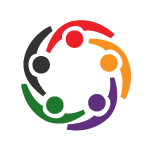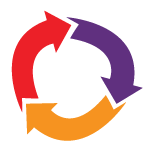Frequently Asked Questions
1. Why did NCRP develop Power Moves? How is it unique?
Power Moves builds on NCRP’s innovative Philamplify initiative, which created a new methodology for examining foundation grantmaking and operations. Philamplify chose a dozen foundations and assessed them on best practice measures of strategic, social justice philanthropy. We publicly shared the results and encouraged discussion and debate. Many of those foundations have acted on our recommendations to improve practice. The toolkit enables us to scale the project, so that many more foundations will be able to examine their grantmaking and operations with an equity lens.
While Power Moves builds on and complements other equity-oriented resources in philanthropy, it is unique in its focus on the role of power to advance equity. The self-assessment guide is also distinctive in its inclusion of stakeholder feedback to help discern how well the foundation uses its position and privilege to build, share and wield power. Consistent with Philamplify, the toolkit urges users to share lessons and feedback publicly to model openness and transparency.
2. What does power have to do with equity?
They are inextricably linked. Disparities and inequities result from systemic racism, sexism, homophobia, ableism and other forms of discrimination and bias, which are not always conscious or intentional but cause very real harm. Power is the force that changes systems, and changing those systems is the only way to achieve equitable outcomes for all communities.
As Lili Farhang wrote, “Developing an analysis of power is essential to break these cycles and be realistic about what it takes to achieve … policy change – where the status quo is often entrenched and resistant to change. Having this analysis would help funders widen the type and scope of interventions and strategies they consider funding and potentially be more successful at advancing … equity.”
As a grantmaker, you cannot truly strive for and advance equity until you understand how power operates in society and acknowledge your own power and privilege relative to grant partners and the communities you seek to benefit. Then you can make conscious choices about how to use your own power to be more effective and have a lasting positive impact, in ways that align with the goals, needs and strategies of the communities you seek to benefit.
3. How should I use this guide?
Power Moves can be applied flexibly based on your needs and available time and resources. You can choose to work on all three dimensions of power or start with one; they can be explored individually and in any order. You can also choose to apply this toolkit to one grantmaking program, several or your entire portfolio.
The amount of time you allocate to complete the assessment and reflection process may depend on several factors: the number, size and scale of grantmaking program(s) included in your assessment; the number of power dimensions you decide to explore; and the human resources you are able to allocate to this process. An assessment across all dimensions of power will likely take at least six months. The sample timeline and steps in the Tools You Can Use section of Power Moves offer guidance but can be modified based on these considerations.
4. Can NCRP help me conduct a self-assessment?
Yes, up to a point. Our staff is happy to provide soft coaching and thought partnership to support your use of the toolkit. We can help answer questions about implementation of the self-assessment processes, offer advice for tailoring the guide’s tools and suggest relevant resources.
If you are looking for more in-depth facilitation and support, we can help connect you to knowledgeable peers in our network and provide referrals to expert philanthropic consultants. Contact Caitlin Duffy (202) 387-9177 x31 or cduffy[at]ncrp.org.
5. Do I need to hire a consultant in order to use Power Moves?
That depends. Power Moves is designed to be flexibly adapted to individual foundation needs and capacities. Whether or not you may choose to seek consultant support depends on the scale of assessment you plan to undertake, how long you want to spend conducting the assessment, and the amount of staff capacity and resources you have to do it. The NCRP team can help you think through that question as it relates to your unique circumstances.
Either way, it may be useful to have someone without a stake in the outcome that can help the assessment participants lean into discomfort when discussing power and equity, navigate issues of confidentiality, process potentially critical feedback, decide on next steps that will truly help the foundation evolve and follow through on those commitments.
6. Do I have to assess all three dimensions of power at the same time?
No. Power Moves provides assessment materials, including data-gathering tips, sample survey questions and discussion guides for each dimension individually. Each can be used as a self-contained assessment unit and process.
That said, there are reasons to assess all three dimensions if you have the capacity to do so. There are economies of scale to gathering internal information and external feedback, analyzing that data, discussing the results and deciding the next steps for all three dimensions. Also keep in mind that the three dimensions of power overlap and intersect. It is likely that if you choose to assess one dimension to start, aspects of the other dimensions will come up in the discussions.
For that reason, we recommend that you read the entire guide first to have context for your work on any one dimension.
7. Does Power Moves have a racial justice/gender justice/LGBTQ rights/disability rights lens?
Yes. As you’ll see in the Power Moves glossary and throughout the guide, NCRP defines equity inclusively to address the many forms of oppression that result in disparate treatment and outcomes for people of color, Native Americans, women, LGBTQ individuals, people with disabilities and other marginalized communities. The intersectionality of marginalization between these many identities is an important concept that informed the toolkit’s approach.
CHANGE Philanthropy and its partners offer resources for funders on rights and equity issues for some of these specific identity groups.
8. How do I know if this assessment tool is a good fit for my foundation? And is this the right time?
Power Moves is designed to be easily adapted for different types of foundations, but it’s important to make sure the foundation engages with the material at a point when this toolkit will be most useful. A simple eight-question readiness assessment will help you discern whether now is a good time to explore the three dimensions of power.
Ultimately, the best time will be when the foundation’s leaders and staff are ready to ask themselves tough questions, ask their constituents for unvarnished feedback and act on what they learn to more effectively advance equity in their grantmaking and operations.
If you decide that it isn’t the right time to dig in to Power Moves, we invite you to review the suggested next steps listed in the readiness assessment and our comprehensive library of resources that can support your organization’s power journey.
9. Does NCRP collect data that allows for benchmarking of funders who’ve been “philamplified” or those that decide to conduct a Power Moves self-assessment?
Not at present. Philamplify’s assessment approach has been to conduct nuanced, comprehensive studies of foundation grantmaking and operations. We have adapted standard data-collection instruments to specific funders. While we have been able to analyze some cross-cutting data (such as over 1,800 survey responses from nonprofits) to make comparisons across “philamplified” foundations, the project was not designed to offer the kinds of benchmarking that the Center for Effective Philanthropy offers with its anonymous survey tools.
Similarly, we see the value of Power Moves as helping each individual foundation determine where it is on the journey of building, sharing and wielding power for equity and justice and to decide where it wants to go next on that journey and take steps to get there.
If early users of Power Moves agree that such data would be helpful and want to coordinate in the collection of it and share that data with NCRP for benchmarking, we will certainly consider such an opportunity.
NCRP does provide benchmarking data through The Philanthropic Landscape series of reports.
10. What can I do if I have a funder or peer that I wish would undertake this kind of assessment?
Share Power Moves with any grantmaker that you think would benefit from examining how well it builds, shares and wields power to advance equity and justice. Or contact us, and we can help strategize outreach.




